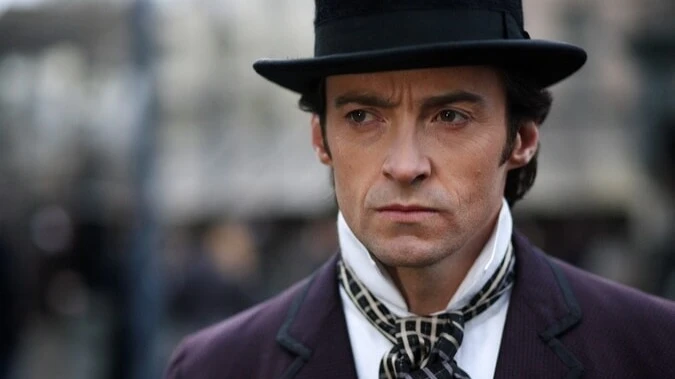Tesla's Testament: what can the movie "The Prestige" teach us about "Masconomics" and the future?
Morgan Stanley watched a Hollywood movie that came out almost 20 years ago and saw in it predictions about the future of Musk's companies and the global technology marketplace

Morgan Stanley analyst Adam Jonas, who is responsible for covering the auto market, has found an unusual way to describe the future of Tesla and the entire "Masconomy" and to make predictions about the future tech economy. Jonas was inspired by the Hollywood movie "The Prestige," which came out almost 20 years ago.
"Last Saturday I watched The Prestige with my sons. The action is set in the late Victorian era, but I found that many of the lines of the character Nikola Tesla (played by David Bowie) elegantly capture the spirit of the current era of scientific discovery," he wrote in a research note available to Oninvest editors.
The movie "The Prestige" directed by Christopher Nolan tells about the rivalry between two illusionists, played by Hugh Jackman and Christian Bale. The central theme of the movie is the perfect trick - teleportation - and its moral price that both characters are willing to pay. Visionary Nikola Tesla creates a device for such a stunt, but warns that using the technology out of vanity and obsession could be destructive. Morgan Stanley's Jonas parses the inventor's quotes in his note to make predictions "about a world soon to be populated by autonomous robots."
"The world tolerates only one change at a time."
In The Prestige, Tesla utters this phrase when explaining to one of the main characters that even the most incredible discoveries - for example, wireless power transmission - are often received with disbelief by society. People are not ready for what seems to be magic, and therefore scientific progress must be gradual.
Jonas uses this line as a metaphor for the gradual merging of Elon Musk's various projects. His companies - Tesla, Neuralink, Starlink, and xAI - are increasingly intertwined, creating a single ecosystem: xAI's data centers train robots, Starlink is used for autonomous transportation, and Optimus robot arms can integrate with Neuralink interfaces.
How does a Morgan Stanley analyst see the further development of "Masconomics"? By the end of 2026, according to assumptions, there will be about 2,000 Tesla robotaxis in the U.S. - twice as many as the current fleet. At the same time, a low-altitude "air economy" will begin to take shape: the number of drones and eVTOL aircraft will exceed the number of ground robots more than tenfold in the future.
Another of Jonas's predictions concerns technological leadership in general. In the next 3-5 years, he suggests, China will maintain its advantage in AI robotics, while American companies will have to find ways to transfer Chinese technology to their territory.
"Man is capable of more than he dares."
Arguing with magician Robert Anger, Hugh Jackman's character, Tesla says, "Man is capable of more than he dares." He convinces the hero that the "impossible" is achievable - but only at the cost of risk and dedication.
The analyst uses this quote to predict Musk's future at Tesla: his unprecedented $1 trillion compensation package will be approved, and the entrepreneur will focus on the transition to AI robots and manufacturing at Tesla - at least until the 2026 election.
Turning to global markets, the analyst predicts that China will surpass the U.S. in lunar exploration, triggering a new space race and accelerating the emergence of an atmospheric-based economic niche. But that won't quarrel the countries: relations between the US and China, Jonas writes, will actually improve - thanks to artificial intelligence robots - as the two countries eventually reach strategic parity. "For the U.S. to diversify critical supply chains and reduce its dependence on China (while controlling inflation), it will, ironically, still have to continue to depend on China," the Morgan Stanley analyst writes.
"The only limits to scientific progress are those imposed by society"
In the same debate in The Prestige, Tesla formulates the thesis: "The only limits to scientific progress are those imposed by society. This sounds like a warning: even when technology is ready, its progress is limited by the willingness of people and institutions to accept change.
The Morgan Stanley analyst uses this thought as a framework for political-social predictions. Jonas believes that breakthroughs in robotics will be accompanied by sweeping changes at both levels. The U.S. will pass federal legislation incentivizing the development of level 4-5 robotaxis, which will help the country keep pace in the geopolitical race. The rapid development of humanoid robots will force lawmakers to accelerate consideration of a national strategy to support them and localize production. Finally, rising capital requirements for AI robots will attract a wide range of institutional and private investors to the sector, and the U.S. will see the largest high-tech manufacturing renaissance in a century.
Numbers instead of metaphors
Morgan Stanley's report not only has "cinematic" metaphors and predictions, but also classic market analytics. Jonas maintains an Overweight rating (equivalent to a "buy") on Tesla shares with a target price of $410 per paper at the current level of about $350. There are several components to the calculation, with $76 per share coming from the automotive business (with a forecast of 4.6 million vehicles by 2030), $159 from networking services, and $90 from the mobility line of business related to robotaxis. Two other elements of the model are the energy segment and the supply of components to third-party manufacturers
Separately, the analyst describes the key risks to Tesla's value: competition from Chinese automakers and large technology companies, possible difficulties in scaling new plants, and the possibility that the market will underestimate the potential of the Dojo supercomputer, Tesla's proprietary development for training neural networks, which is critical to the development of autopilot, robotaxis and humanoid robots.
This article was AI-translated and verified by a human editor
